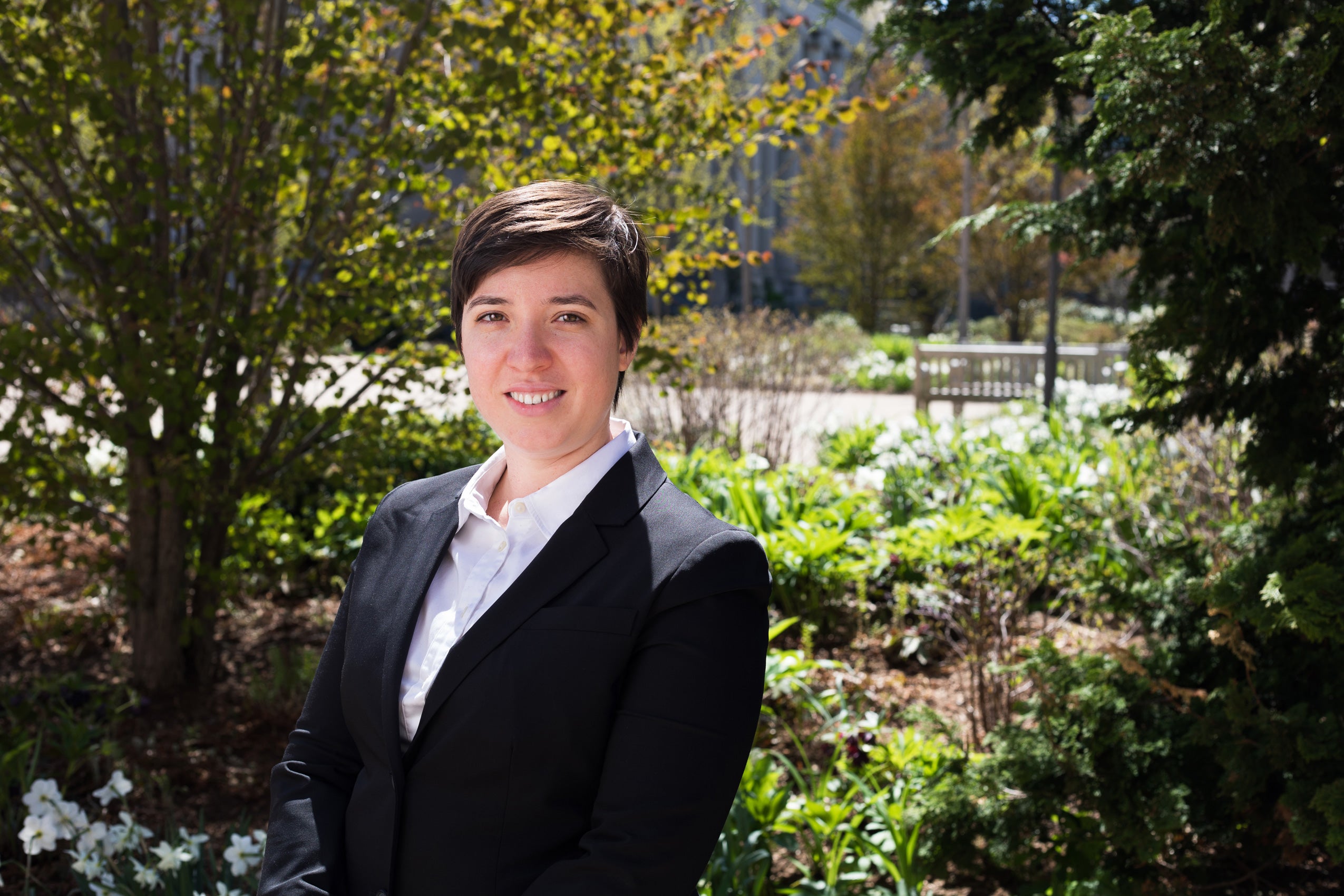Liz Soltan ’19 is not like some Harvard Law School students who have known for a long time that they wanted to be a lawyer. After college at Cornell University, she taught English in Malaysia and then worked at a nonprofit that connected clients to pro bono lawyers in her native Philadelphia. She interacted with public interest lawyers at the nonprofit, as well as lawyers practicing in big firms, small firms, and solo — all of whom wanted to serve their community. And she realized that the law could be a means to do exactly what she wants to do — help people who need it the most.
Now she is on the cusp on being a public interest lawyer herself, slated to begin a two-year Skadden Fellowship at Community Legal Services of Philadelphia. But she has already gained experience as a legal practitioner through extensive work with the Tenant Advocacy Project during her 1L year and thereafter with the Harvard Legal Aid Bureau (HLAB), including arguing one case before the highest court in the Commonwealth of Massachusetts.
That case involved a practice area that Soltan immersed herself in — wage theft, a problem that particularly affects immigrant workers in low-paying jobs, she said. HLAB students worked on the case for several years, previously helping to secure a settlement for two workers at a dry cleaner whose employer did not compensate them for all the hours they worked, including overtime. But the employer refused to pay attorneys’ fees, arguing that it only was required to do so if it had lost the case in court. HLAB filed an application for Supreme Judicial Court review, which was granted. Soltan wrote the brief with Kenneth Parreno ’19, and she appeared before the Court in December 2018, ultimately winning the decision that gave the workers “prevailing party” status that entitled them to attorneys’ fees.
“The reason we thought this was important is that it will help more workers get competent representation and be able to pursue their rights,” she said. “Hopefully it will also have a deterrent effect on employers.”
In other cases she worked on, she represented people threatened with eviction and facing possible homelessness. One woman was in subsidized housing that failed inspection and, according to Soltan, the landlord maneuvered to evict the tenant rather than improve conditions. Another client was a survivor of domestic abuse whose path to apply for public housing was impeded by poor references from previous landlords based on the actions of her abuser.
Of course, it’s important to know the law in these cases, and Soltan credits HLS Clinical Instructor Patricio Rossi for guiding her through the process. But she also emphasizes the importance of knowing her clients as people with other concerns besides their case, who have histories and hardships. She makes it a point not only to talk to them about the facts of the case but about their lives.
“You’re coming to people at a really tough moment in their life and asking them about really sensitive personal subjects. And you’re a total stranger,” said Soltan. “I think a lot of it has been trying to be humble and listen to people and not assume that I know anything.”
She developed her focus on social justice growing up in Philadelphia, a place she loves but which also exposed her to problems in the city with injustice, racism, and educational inequities, she said. Her parents, devout churchgoers who still help prepare free meals for people in the community, influenced her as well. “My parents have always had the sense of there’s a lot of things that are wrong in the world, and it’s not good to do nothing about it,” Soltan said.
She hopes to improve conditions for people in her city on her fellowship, where she’ll be working with parents of newborns to ensure that they have needed resources during their child’s first year of life, including legal aid and access to benefits. HLS’s Office of Public Interest Advising helped her secure the fellowship and the law school has provided resources to help her fulfill her goal to pursue public interest work, she said.
Looking back at her HLS experience, Soltan said: “It’s been really hard but it’s also made it possible for me to develop the skills to do important work and get to interact with a lot of amazing people who’ve been my clients or have been organizers or lawyers doing work that is not evil. So it has expanded my view of what legal work can mean and hopefully given me the tools to keep expanding that view.”
Related Reading
https://today.law.harvard.edu/harvard-legal-aid-bureau-gets-landmark-win-in-attorneys-fees-case/
